
Man on death row for Tinder killing is accused of hatching $25k murder-for-hire scam behind bars
A death row inmate in Nebraska who was convicted of killing his Tinder date has now been accused of concocting a fake murder-for-hire scheme from behind bars – with a little help. Aubrey Trail, 56, was sentenced to death in June 2021 for the brutal 2017 murder and dismembering of Sydney Loofe after meeting her on the dating app Tinder. While in prison, he met 55-year-old Samantha Al-Rekabi of Lincoln, Nebraska, who was writing a book about Loofe’s murder and the two began hatching a plan to swindle a nurse at the Lincoln prison out of $25,000. On Sunday, Ms Al-Rekabi was arrested and has since been charged with felony theft by extortion in the case, according to court records. Investigators began the probe after being tipped off by another inmate in 2021. They say the two “manipulated” the nurse into smuggling in contraband, including a phone and chewing tobacco, according to a recent arrest warrant affidavit obtained by the Lincoln Journal Star. The nurse, who has not been named because she is not charged, worked at the Nebraska Diagnostic & Evaluation Center, now known as the Reception and Treatment Center. She quit just before the Nebraska State Patrol’s investigation began in March 2021, was interviewed by the FBI in December of that same year. She told the FBI she’d been manipulated by Trail and admitted to smuggling him contraband, the affidavit states. The affidavit revealed that Trail told Ms Al-Rekabi to befriend the nurse, which she did, and the two bonded over being “true crime buffs” and confided in each other about marriage troubles. In the interview, the nurse talked about how Trail exploited her friendship with Ms Al-Rekabi, and alleged that Trail had told her he’d hired a hitman to kill her husband and that he would only call off the hit if she paid him $25,000. She agreed to pay the money and went to the bank with Ms Al-Rekabi to withdraw the funds. The affidavit revealed the nurse had withdrawn $25,000 in cash from her account. The affidavit also revealed that in a number of phone recordings investigators believe to be between Ms Al-Rekabi and Trail, she was allegedly heard bragging to Trail about getting the blackmail money from the nurse, gushing “she’s gonna get her pension out just [to] give it to us.” A response from a male can be heard, “She don’t have a choice.” It was revealed that investigators came to “believe that there was never a legitimate plan” to pay a hitman to kill the nurse’s family. Other calls detailed Trail’s alleged desire to have a gun smuggled into the prison. In one of the calls, a male’s voice is heard telling the nurse to “bring me a gun so I can just kill everybody,” according to the affidavit. Ms Al-Rekabi later admitted that she helped Trail because she was afraid he would hurt her son, who is also in prison. She appeared in court on Monday where her bond was set at $5,000. An interview with a Nebraska State Patrol investigator in April 2023 also revealed that Ms Al-Rekabi had admitted to working as an intermediary between Trail and his girlfriend, Bailey Boswell, a former store clerk who was also convicted for her role in Loofe’s killing, KLKNTV reported. Boswell, who was at the center of a wild outburst by Trail during his 2019 trial, was sentenced to life in prison without the possibility of parole in November 2021. Trail had tried slashing his throat and yelled “Bailey is innocent, and I curse you all!” Read More Alex Murdaugh pleads guilty to committing crime for first time Extortion trial against Joran van der Sloot, suspect in Natalee Holloway disappearance, is delayed Teenager arrested over murder of girl, 10, who was shot while being driven back from Mother’s Day party
2023-09-20 01:19

Delphi murders suspect makes bombshell claim that victims were ‘sacrificed’ by white nationalist cult
Delphi murders suspect Richard Allen has made the bombshell claim that teenage best friends Libby German and Abby Williams were killed as part of a “ritualistic sacrifice” at the hands of a white nationalistcult. In sensational court documents, filed on Monday, attorneys for the 50-year-old accused killer claim that the brutal 2017 murders were carried out by members of a pagan Norse religion and white nationalist group called Odinists. “Members of a pagan Norse religion, called Odinism, hijacked by white nationalists,ritualistically sacrificed Abigail Williams and Liberty German,” state the documents, seen by The Independent. The nature of the crime scene pointed to the work of a cult from the get-go, according to the bombshell 135-page document which said it “resembled possible Odinism signatures left behind at the crime scene”. Libby and Abby’s bodies had both been staged with tree branches and sticks across their bodies in the shape of pagan symbols, the documents state. While his defence attorneys claim Mr Allen has no connection to any pagan cult, the bombshell documents also take the extraordinary step of naming four other individuals as potential suspects. None of the individuals have ever been named by law enforcement as suspects or persons of interest in the case and The Independent is not naming them. According to Mr Allen’s attorneys, law enforcement officials had explored possible links between the killings early on in the investigation – but then quickly “abandoned” the theory after speaking to an unidentified professor who refuted any possible link. But despite this, at least three law enforcement officers – former Rushville assistant police chief Todd Click and officers Kevin Murphy and Greg Ferency – continued to investigate a possible connection. By February 2018, Mr Allen’s attorneys say that “the evidence establishing the names of the likely murdering members of this Odinite cult became known to the Delphi investigative leadership”. The investigators connected two separate groups of men who practiced Odinism – one in Delphi and the other in Rushville – to each other and “then connected both groups of men to the murders”, the court documents state. The murders that rocked the close-knit community of Delphi have never been publicly linked to Odinism before now. On 13 February 2017, Libby and Abby headed along the Monon High Bridge Trail in their hometown. During the walk, Libby posted a photo of her best friend on Snapchat as they walked along the Monon High Bridge. Minutes later, Libby captured a video of a man – known as “bridge guy” – dressed in blue jeans, a blue jacket and a cap walking along the abandoned railroad bridge. In the footage – found on Libby’s phone following their murders – the man tells the two girls: “Guys, down the hill.” Later that day, the teenagers were reported missing when they failed to return to a spot where a family member was picking them up. The next day – Valentine’s Day 2017 – their bodies were discovered in a wooded area less than half a mile off the trail along the side of Deer Creek. In the new court documents, Mr Allen’s attorneys claim that there were “possible Odinism signatures left behind at the crime scene” including the staging of the bodies and branches displayed on the victims to create pagan symbols and shapes. Describing the scene as “ghoulish”, the documents also reveal never-before-known details about how Libby and Abby died. The teenage best friends both had their necks slashed, the documents reveal. Libby was found at the base of a tree with “four tree branches of varying sizes intentionally placed in a very specific and arranged pattern on her naked body” and blood spots and drippings all over her body. Abby meanwhile was fully clothed, including in Libby’s sweatshirt and jeans, the documents state. There was no blood on her clothing, indicating that she was likely murdered while naked and then dressed after she was killed. Tree branches and sticks had also been arranged on her body, the documents state. Both victims appeared to have been moved after they were murdered and positioned. “Richard Allen has zero connections to any pagan cult or pagan cultists, and furthermoreno forensic evidence (such as DNA) or electronic evidence links Richard Allen to the girls or tothe crime scene – i.e., he is a completely innocent man,” the defence attorneys write. As well as the claims that Odinism could be linked to the killings, Mr Allen’s attorneys have accused the prosecution of withholding this information from the defence – and that the possible ties only came to light because Mr Click reached out to the state in the wake of the arrest. The documents state that Mr Click was concerned that the probable cause affidavit laying out the case against Mr Allen was “far less compelling than the totality of the information” that they had gathered about the Odinism angle and so sent a letter to prosecutor Nick McCleland in May to ensure he was aware of that information. The state did not hand over this information or the letter until September, the defence states. The defence is also claiming that Odinists are working as corrections officers at Westville Correctional Facility where Mr Allen is being held awaiting trial – and where they claim he has suffered ill-treatment. Now, the defence is seeking a Franks hearing in the case and to have Mr Allen moved to another facility. The bombshell claims laid out in the new court documents mark the latest twist to the tragic case which began when two teenage best friends set off on a walk together one spring day in 2017. For more than five years, the girls’ devastated families waited for answers in the case as no arrests were made. Then, in late October 2022, Mr Allen – a local man who served the victims’ families in his job at the Delphi CVS store – was finally arrested and charged with their murders. According to investigators, Mr Allen is the so-called “bridge guy” captured on camera by the victims. The suspect forced the two victims down the hill and led them to the location where they were murdered, according to his probable cause affidavit. The criminal affidavit, which was partially redacted and released in November, previously revealed that the local man was finally tied to the February 2017 murders through a bullet found at the bloody crime scene. Ballistics confirmed that an unspent .40 caliber round found close to the bodies of the teenage victims came from Mr Allen’s Sig Sauer Model P226. The firearm – which he owned since 2011 – was found during a search of his home last October and both he and his wife Kathy told police he was the only person with access to it, the documents state. The documents also revealed that, in Libby’s cellphone footage, one of the victims mentions the word “gun” – suggesting that their attacker was armed with a firearm and was using it to coerce the victims. In a police interview on 13 October, Mr Allen told investigators he had “no explanation” as to how the spent bullet ended up near the bodies of the two teenage victims, the document states. The accused killer said he had “not been on the property where the unspent round was found, that he did not know the property owner, and that he had no explanation as to why a round cycled through his firearm would be at that location,” it says. The property owner – Ron Logan – was also previously tied to the case. He died in 2020. As well as the ballistics evidence, Mr Allen was also tied to the killings after his vehicle was spotted parked close to the trail in “an odd manner” as if to “conceal the license plate”, the affidavit previously revealed. Several witnesses also reported seeing a “creepy” man matching the description of “bridge guy” around the time of the murders while one person said they saw a “muddy and bloody” man leaving the trail around two hours after Libby and Abby were last seen alive. The witnesses did not see anyone other than “bridge guy” on the trail at the time, the affidavit reads. The married father to a daughter had been on law enforcement’s radar back in 2017 after he admitted to being on the trail the day the girls were killed. During a 2017 interview with police, Mr Allen confessed to being on the Monon High Bridge Trail that afternoon but denied any involvement in the murders and insisted he had never seen the two girls that day. Despite placing himself at the scene of the crime at the time of the murders, he slipped through the net due to a “clerical error”. Since his arrest, Mr Allen has confessed to the 2017 murders multiple times behind bars – including in a jailhouse phone call with his wife, dramatic court documents revealed back in June. While prosecutors say that the accused killer admitted “several times” that he carried out the brutal murders, Mr Allen’s attorneys claim that his confession cannot be believed due to his current mental state. The sudden arrest of the local man almost six years on from the murders marked a major break in the case. But the investigation is far from over with officials saying that they believe Mr Allen may not have acted alone. Prior to Mr Allen’s arrest, investigators had been searching for information about a catfishing account which was in contact with Libby on the day she was killed. The man behind the account – Kegan Anthony Kline – was tied to the 2017 murders in December 2021 when investigators urged the public to come forward with information about a bogus online profile named @anthony_shots. Kline, 28, confessed to using the fake profile to groom underage girls, get them to send him nude photos and their addresses, and try to get them to meet him in person. In a 2020 police interview, a transcript of which has been seen by The Independent, Kline admitted that he had communicated with 14-year-old Libby on Instagram and Snapchat through the catfishing profile before she died. The transcript revealed that he had exchanged photos with the teenage girl and that Libby had communicated with the fake profile on the very day that she and Abby were murdered. On 25 February 2017 - less than two weeks after the two girls were brutally killed – police carried out a search of Kline’s home in Peru. Kline has never been charged in connection to the murders. However, he told “The Murder Sheet” podcast in a jailhouse interview that he has information about the murders but that police “don’t want to hear anything I have to say”. In July, he was sentenced to more than four decades in prison on a string of child sexual abuse and child exploitation charges. Read More Delphi murders suspect Richard Allen ‘confessed to killing teenagers in jailhouse phone call with wife’ What we know about the Delphi murders of Abigail Williams and Libby German Delphi murders suspect Richard Allen seeks to toss key evidence from case
2023-09-20 00:55
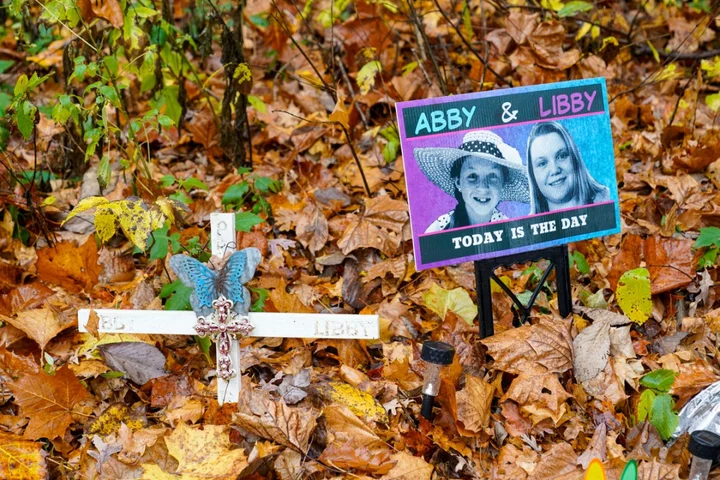
The Delphi murders suspect claims a pagan cult is behind the killings. What is Odinism?
The notorious Delphi murders case has taken another shocking twist as accused killer Richard Allen made a bombshell claim about the killings of teenagers Libby German and Abby Williams. In court documents released on Monday, the 50-year-old local man maintained his innocence of the 2017 killings and instead claimed that the murders were carried out by a pagan cult hijacked by white nationalists. “Members of a pagan Norse religion, called Odinism, hijacked by white nationalists, ritualistically sacrificed Abigail Williams and Liberty German,” his attorneys write in the documents seen by The Independent. Mr Allen’s attorneys said that “possible Odinism signatures” were left behind by the killers at the crime scene with the victims’ bodies staged by trees with branches and sticks laid across their bodies in the shape of pagan symbols. While Mr Allen has no known connection to any pagan cult, his defence attorneys also took the extraordinary step of naming four individuals they say are involved in Odinism as potential suspects. None of these individuals have ever been named by law enforcement as suspects or persons of interest in the case. What is Odinism? Odinism is a pagan Norse religion with origins in ancient Viking and Nordic beliefs and pre-Christian European culture. Sometimes referred to as Wotanism, it is seen as a “racist variant” of the pagan religious sect Asatru, according to the Anti-Defamation League. While Asatru itself is not racist, over the years Odinism has become increasingly tied to white supremacist and neo-Nazi beliefs in the US. Many followers – known as Odinites – are now said to exist among the white supremacist prison population. “The religion, which revives a pre-Christian pantheon of Norse gods, is appealing to white supremacists because it mythologizes the virtues of early northern European whites – seen as wandering barbarians, deeply involved in a mystical relationship with nature, struggling heroically against the elements,” the Southern Poverty Law Center explains. “It sings the virtues of the tribe, or folk, strongly emphasizing genetic closeness. And it credits whites with building civilization and an ethic of individual responsibility, even as they boldly slew wild boars, fought for their tribes and explored the far reaches of the known world.” Were Libby and Abby killed by Odinites? The murders of Libby and Abby have never been publicly linked to Odinism before now. But, according to Mr Allen’s attorneys, law enforcement officials did explore the cult’s possible involvement early on in the investigation – as far back as February 2018. On 13 February 2017, Libby and Abby disappeared after set off on a walk along the Monon High Bridge Trail in their hometown of Delphi. During the walk, Libby posted a photo of her best friend on Snapchat as they walked along the Monon High Bridge. Minutes later, Libby captured a video of a man – known as “bridge guy” – dressed in blue jeans, a blue jacket and a cap walking along the abandoned railroad bridge. In the footage – found on Libby’s phone following their murders – the man tells the two girls: “Guys, down the hill.” The next day – Valentine’s Day 2017 – the girls’ bodies were discovered in a wooded area less than half a mile off the trail along the side of Deer Creek. In the court documents, Mr Allen’s attorneys claim that there were “possible Odinism signatures left behind at the crime scene” including the staging of the bodies and branches displayed on the victims to create pagan symbols and shapes. Describing the scene as “ghoulish”, the documents also reveal never-before-known details about how Libby and Abby died. The teenage best friends both had their necks slashed, the documents reveal. Libby was found at the base of a tree with “four tree branches of varying sizes intentionally placed in a very specific and arranged pattern on her naked body” and blood spots and drippings all over her body. Abby meanwhile was fully clothed, including in Libby’s sweatshirt and jeans, the documents state. There was no blood on her clothing, indicating that she was likely murdered while naked and then dressed after she was killed. Tree branches and sticks had also been arranged on her body, the documents state. Both victims appeared to have been moved after they were murdered and positioned. According to Mr Allen’s attorneys, police on the case did investigate a link to Odinism but, after speaking to an expert, the theory was quickly “abandoned”. Several officials continued to believe an Odinist cult was behind the murders but the information was withheld from the defence, his attorneys claim. Now, the defence is seeking a Franks hearing in the case and to have Mr Allen moved to another facility. Read More Delphi murders suspect makes bombshell claim that victims were ‘sacrificed’ by white nationalist cult What we know about the Delphi murders of Abigail Williams and Libby German Delphi murders: What we know about suspect Richard Allen
2023-09-20 00:21

Suspected serial killer Billy Chemirmir killed in Texas prison
A convicted murderer who is suspected of slaughtering dozens of other women was found dead in his Texas jail cell early Tuesday, according to the Texas Department of Criminal Justice. The TDCJ said Billy Chemirmir’s cellmate was identified as the assailant. Billy Chemirmir was found guilty of capital murder in October 2022 in the death of 87-year-old Mary Brooks. His first case for another murder ended in a mistrial.
2023-09-19 23:46
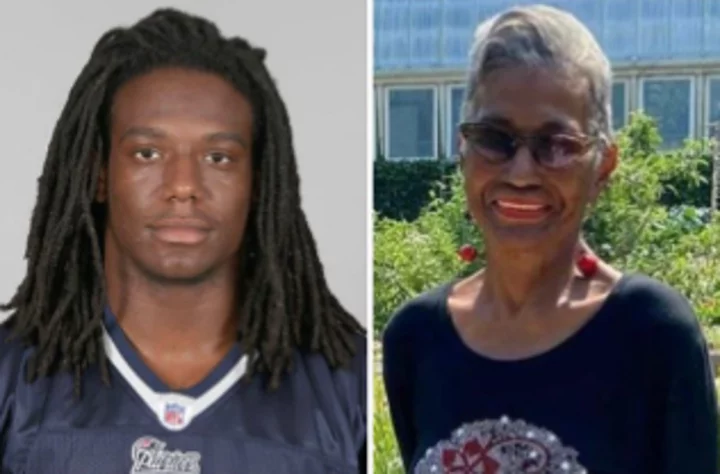
Sergio Brown - updates: Missing ex-NFL player ‘posts video rant’ after mother is found dead
A former NFL player is missing after his mother was found dead in a creek behind her home in Illinois. Mystery erupted around Sergio Brown on Saturday after a concerned family member filed a missing persons report for the 35-year-old New England Patriots alum and his mother Myrtle Brown, 73. Myrtle was found dead less than 100 yards from her Maywood home the following day. Her death was ruled a homicide as the Cook County Medical Examiner’s Office found injuries resulting from an assault. The case took a bizarre turn on Monday as video emerged from an Instagram account linked to Mr Brown, Fox32 reported. In the video, a man identified as Mr Brown claims he’s been kidnapped by law enforcement as he goes on a long-winded rant against “fake news” and the FBI. He also claims that he thought his mother was on vacation. The Independent has not been able to independently verify that the account belongs to Mr Brown. Police have not commented on the video. Read More Missing ex-NFL star posts bizarre Instagram about police and FBI after mother found dead in creek Ex-NFL star Sergio Brown and his mother went missing. Police say she was murdered and he has yet to be found
2023-09-19 23:25
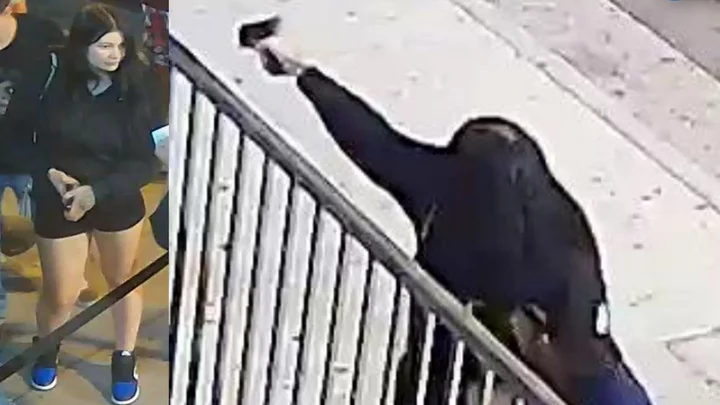
Denver police search for woman suspected of mass shooting at Dierks Bentley bar
Police in Denver are looking for a female suspect in connection with a mass shooting that injured five people at a bar in the city’s Lower Downtown district. The shooting happened at Dierks Bentley’s Whiskey Row at around 11.14pm on Saturday. Surveillance cameras caught images of a woman pointing a gun in the direction of five people standing outside of the bar. According to police, the woman was denied entry into the bar, then started to walk away, but quickly returned to talk again with security staff. After she started to walk away from the bar for a second time, she took out a gun and fired it in the direction of the bar several times, injuring five victims who are presumed by police to not be the intended targets. Officers in the area quickly rushed to the scene along with paramedics who took the victims to the hospital. The injuries they sustained are believed to be non-life-threatening. Lissa Druss, a spokesperson for Dierks Bentley’s Whiskey Row told Scripps News, “We are disheartened by the events of last evening. Our thoughts and prayers go out to those that were injured,” she said. “We are grateful for the swift actions of DPD, but we are very concerned about the activity in LoDo and have been engaged with city officials and neighbourhood leaders on how to make positive improvements in the area. The safety of our staff and our patrons is paramount to our company." There has yet to be an arrest made in connection with the shooting. This particular shooting has been recorded as the 500th mass shooting this year in the United States, according to the Gun Violence Archive. The bar where the shooting took place opened in 2021 and is part of a chain of bars across the United States owned by American country music star Dierks Bentley. Another shooting also happened in the past few in Denver on 17th Avenue between Gilpin Street and Williams Street, where three people were shot, two of them hospitalised, Denver police say. The incident happened on Monday night, with a possible suspect in custody. Read More A Colorado mountain tied to an 1864 massacre is renamed Mount Blue Sky Minnesota man acquitted of killing 3 people, wounding 2 others in case that turned alibi defense Mother of Baltimore mass shooting victim condemns faulty police response: 'That's not right'
2023-09-19 22:57
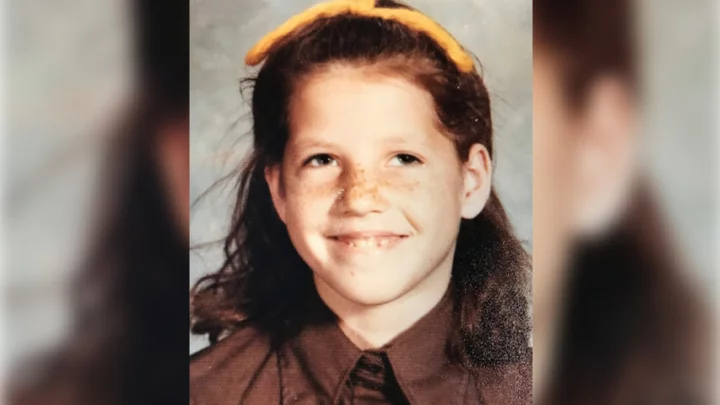
Cold case rape and murder of nine-year-old girl in Georgia is finally solved after 50 years
After five decades of agony for the family of a nine-year-old girl who was raped and killed, police have identified the culprit of the heinous crime. Debbie Lynn Randall vanished in mid-January of 1972. Her body, which had been raped and strangled, was found 16 days later after thousands of people banded together to search for the missing girl. She was thought to have been abducted from a nearby laundromat in Marietta and was found near an intersection of Windy Hill and Powers Ferry Road in Marietta, Georgia. For decades, the family never learned who did this to the nine-year-old, with her parents dying before they ever got to know the truth. In 2022, a piece of cloth that was recovered from the crime scene was sent to forensics for further analysis after police obtained more DNA testing funding. DNA Labs Internation conducted further testing and found a potential match for the killer, and contacted the family to provide additional DNA samples for comparison. The man they finally landed on was identified as William Rose, someone who was never on police radar at the time. William Rose, however, will never face justice for his crime, as he died by suicide in 1974, two years after he killed Debbie. He was 24 at the time of the murder and would have been around 75 if he were still alive. Debbie’s mother died of leukaemia in 2018 and her father died only last year, however, her brother, Melvin Randall was at the news conference to hear who the person was who killed his sister. "My family appreciates everything they’ve done - all the time and the effort that they’ve done to bring to a close." Mr Randall said. "I wish my mother was here, but I know she knows in heaven that it’s finally over." Debbie went to the laundromat half a block away from her house with her stepfather at around 7pm, but he left before her, reports WAFB. Around 8.30pm Debbie’s mother became concerned about her whereabouts and went out the laundromat to try and find her, but an employee said she left an hour before. Two local youths said that a dark pickup truck backed up in a parking lot near the girl’s home and drove away quickly. All that was left in the parking lot was spilt laundry detergent. While Rose did not live in the area, he likely often visited the the community because he had relatives there, Ron Alter, a cold case investigator with the district attorney’s office said. "If he drove by, I’m sure he saw her. I believe that was a crime of opportunity. He saw her by herself and abducted her," Mr Alter said. He also confirmed that Rose had prior arrests for alcohol-related incidents. Mr Alter said it’s possible Rose killed himself because he was afraid of being caught or going to jail. It was thanks to new technological advances in DNA testing that justice and peace were given to this family after all this time "It may take us some time, but with the new technologies that are coming out every day, we’re going to do everything we can to solve our cold cases, to make sure we bring people to justice," Cobb County District Attorney Flynn Broady said. As for Debbie’s surviving brother, he says that he has forgiven Rose for what he did to his sister. “I learned over the years that it does you no good to hate or hold grudges,” he said. Read More Georgia deputies killed in ‘ambush’ while serving arrest warrant The BTK killer’s need for notoriety led to his capture a decade ago. He’s now a ‘prime suspect’ in at least two other murders ‘Lady of the Dunes’ killer identified after nearly 50 years
2023-09-19 21:23
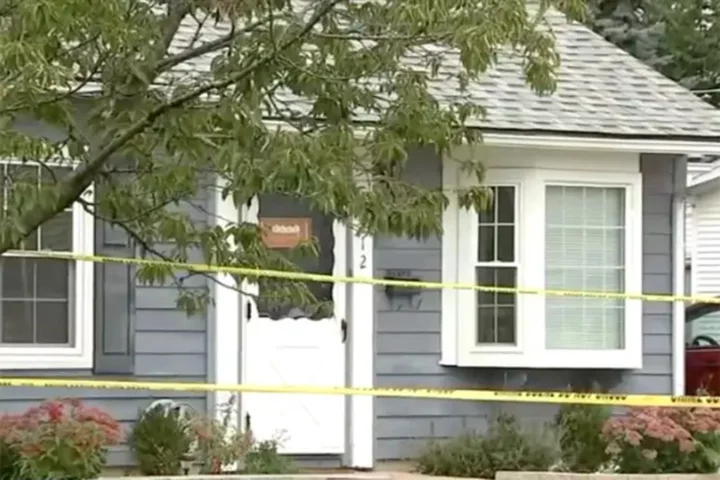
Killer at large after family of four shot dead in Illinois home along with three dogs
A family of four and their three dogs were found shot dead in their home in a Chicago suburb – with the killer or killers now at large. The bodies of Alberto Rolon, Zoraida Bartolomei and their two children were found on Sunday after family members asked police to carry out a welfare check, Romeoville Police Deputy Chief Chris Burne said in a press conference on Monday. Police said that relatives had become concerned when one of the adults failed to turn up for work at 6am on Sunday morning and then didn’t respond to phone calls throughout the day. Officers carried out a welfare check at around 8.43pm at the family’s home on the residential 500 block of Concord Avenue in Romeoville. When police arrived at the home, the four family members were dead from gunshot wounds. Three dogs were also found shot dead inside the home. The names and ages of the children have not yet been released. In a statement, police said that the killings are believed to have happened between 9pm on Saturday evening and 5am on Sunday morning. Deputy Chief Burne said that investigators had ruled out a murder-suicide, with the perpetrator or perpetrator unknown at this time. “We do not believe the offender is among the victims,” he said during the press conference. “It is not a murder-suicide.” Despite concerns that the killer is out there, police said they do not feel the need to lock down the area. “Due to the timeframe that has gone by – more than 18 hours from the time we were contacted – we are not asking anybody to shelter in place, we are not actively looking for anybody in the area,” said Deputy Chief Burne. Currently, no further information about the killer is known, with locals voicing concerns that such a tragedy could unfold in what they thought was a peaceful residential area. Lynn Phillips, who lives one door down from the family’s home, told The Chicago Sun Times that it was “devastating”. “I’ve been crying on and off all day. It was a mom and dad and a couple of kids. The parents would be outside working the yard, and we’d wave hi and bye, that kind of thing. Nothing unusual. We all keep to ourselves,” the neighbour said. Cristina Ibarra, who has lived in the residential community for three years, told the paper that it is very unusual for police to even patrol the area because the streets are usually so quiet. “It’s sad because it’s your neighborhood and it’s usually quiet, and then this happens,” Ms Ibarra said. “It’s very sad.” Police said that the investigation is in the early stages, so further details will not yet be released due to the sensitivity of the case. Read More Former NFL player Sergio Brown missing; mother's body was found near suburban Chicago creek Owner of day care where toddler died of suspected fentanyl exposure dubbed ‘depraved’ in court hearing Delphi murders suspect makes bombshell claim that victims were ‘sacrificed’ by white nationalist cult
2023-09-19 19:49

Police investigating deaths of two aspiring models in apartment buildings days apart
Police in Los Angeles are investigating after two aspiring models were found dead in apartment complexes just days apart. One of the deaths has already been ruled a murder, while the second is still under investigation. Police said it was too early to say if the cases are connected, according to ABC News. Maleesa Mooney, 31, was killed on 12 September. Police found her around 3.45pm PST by officers responding to a welfare check at her apartment. That death is being investigated as a homicide, according to the broadcaster, citing an LAPD spokesperson. “The investigation revealed that Maleesa Mooney had been murdered inside of her apartment. Maleesa Mooney’s exact cause of death is unknown, pending a post-mortem examination which will be conducted by the Los Angeles County Coroner’s office,” police said in a statement on 15 September. Nichole "Nikki" Coats, 32, was killed on 10 September. Her cause of death is "undetermined" at this point, but a homicide investigation may begin following the LA County Department of Medical Examiner-Coroner report. Ms Mooney's family held a rally in LA on Sunday evening demanding justice for the woman's death. The woman's sister, Jourdin Pauline, told an ABC News affiliate that her family became concerned after multiple failed attempts to get in touch with her. "We're supposed to grow old together," Ms Pauline told KABC. "That's not supposed to happen to her." She described her sister as "kind," "genuine," and "loving." "To have someone do what they did to my sister, to that caliber, is sick. It's demented,” she said. The LAPD has asked that anyone with information regarding Ms Mooney's death come forward. Ms Coats' father, Guy Coats, told ABC News that he and his family are "distraught" after learning of her death. He said Ms Coats was an aspiring model who worked as a sale rep in her daytime hours. On 12 September, a cousin who had spent time with Ms Coats told Mr Coats that she couldn't get ahold of the woman. Ms Coats cousin had a key to her apartment and let herself in to see if she was home. She found Ms Coats unresponsive, and said when she touched her she "was like a rock." The cousin then called 911. Ms Coats family became suspicious that foul play led to the woman's death after learning that another aspiring model had been killed just days before, only three miles from her apartment. The family is currently awaiting the coroner's report. Read More Person detained in ‘ambush’ killing of LA sheriff’s deputy Police investigating murders of elderly couple find human remains Idaho murder victim’s father claims Bryan Kohberger is enjoying ‘unprecedented privileges’ in jail
2023-09-19 18:49

Owner of day care where toddler died of suspected fentanyl exposure dubbed ‘depraved’ in court hearing
The owner of a New York day care where a one-year-old boy died of fentanyl exposure was dubbed “depraved” during a court hearing. Youngster Nicholas Dominici died after he was exposed to the opioid at a Bronx facility on Friday, while three other young children were hospitalised. Daycare owner Grei Mendez, 36, and tenant Carlisto Acevedo Brito, 41, were arrested on charges including murder, manslaughter and assault. A kilo of fentanyl was found in a hallway closet outside Mr Brito’s room, which he rented from Ms Mendez for $200 a week, according to investigators. Prosecutors told a judge during a Sunday night arraignment hearing that Ms Mendez had taken part in the “reckless depraved act” by renting Mr Brito, her husband’s cousin, the room, reported ABC News. Her lawyer told the court that his client, who faces a sentence of life imprisonment if convicted, had no idea that drugs were being stored at the daycare. “Her only crime was renting her room to someone who had a kilo,” attorney Andres Aranda said. “There is no evidence that she did anything but care properly for these children.” Police say that drug production equipment was also found inside the daycare. Investigators believe that the children inhaled fentanyl particles during their daylong exposure to the drug before they were found unconscious and the alarm was raised. The judge said that Mr Brito, a national of the Dominican Republic in the country illegally, was a flight risk. He also said that Ms Mendez, who is not a US citizen and also has ties to the Dominican Republic, was a flight risk. Authorities are also looking to question Ms Mendez’s husband, who they say was captured on video fleeing the daycare with bags after the incident. “I love him, I miss him, I want him back – but there’s nothing that will give me back my son – when I came home from work and walked through the door, he’d say ‘daddy, daddy!’” Nicholas’s father, Otoniel Feliz, told ABC7. “My wife was on her way to the day care. She was going to pick him up early. Shortly before she arrives, she receives the call and also sees the ambulance.” Read More One-year-old child dead and three others hospitalised after daycare incident
2023-09-19 07:26
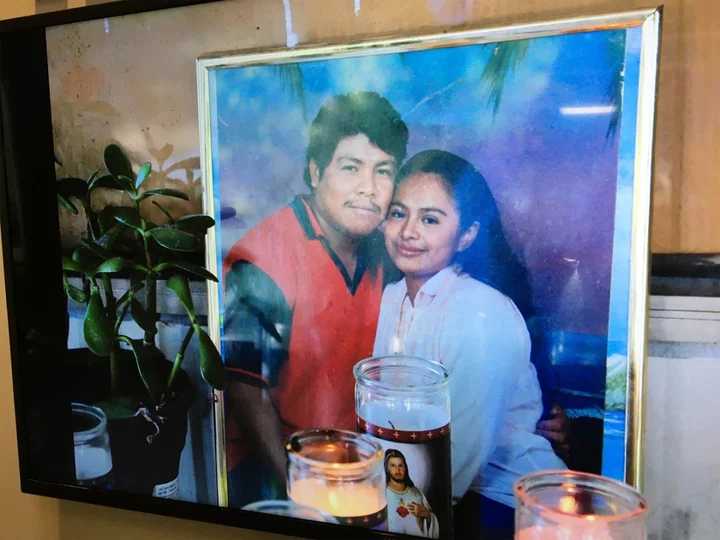
Jury rejects lawsuit after police fatally shoot man when going to wrong house
A federal court jury in Oxford, Mississippi, has ruled against a civil lawsuit filed by the widow of a man who was shot dead in 2017 by two police officers, while serving a warrant at the wrong address. Claudia Linares was seeking $20m in compensation for the death of her husband Ismael Lopez, 41. During the four-day trial that concluded on Thursday 15 September, the jury ruled that Southaven officers, Zachary Durden and Samuel Maze, did not violate Lopez’s civil rights. “The verdict was that the jurors did not believe that the use of force used by Officers Durden and Maze was excessive in light of all the facts that they considered,” Murray Wells, the attorney for Lopez’s family, said in a statement to WREG-TV. The case had previously attracted attention because the city tried to argue that Lopez did not have any civil rights as he was living illegally in the US and was facing deportation and criminal charges for the illegal possession of firearms. However, in 2020, a judge rejected the city’s claim, and ruled that constitutional rights apply to “all persons.” The Mississippi Bureau of Investigation reported that on 14 July 2017, Lopez and his wife were in bed when officers knocked on their door with the intention of serving a domestic violence warrant to a person who actually lived across the street. According to Mr Durden and Mr Maze, the pair did not identify themselves, and when the door opened, Lopez’s dog ran out and he pointed a rifle through the door. Officer Maze then shot the dog and Mr Durden fired multiple bullets at Lopez. He died after a bullet hit the back of his skull when he was six feet from his front door. Police have claimed he was running away from law enforcement, and a third office later told investigators that Mr Durden had ordered Lopez to drop his rifle several times before shooting him. Lopez’s lawyers stated in their argument that his fingerprints and DNA were not found on the rifle supposedly used to fire at Mr Durden, but believe the officer shot him in reaction to his colleague shooting the dog. They also called upon evidence that state investigators found his body lying in a prone position with his hands cuffed behind his back. There is no video footage to corroborate either claim. “Those officers used tactical maneuvers to hide themselves as police officers,” Mr Wells told WREG. “There are a couple of huge factors at play. One was this unbelievable mistake of going to the wrong address and we felt it was just incompetent because they didn’t even take the time to look at the boxes. They went to the wrong side of the road, so that started this. They never announced that they were police and at the end of the day Ismael Lopez was shot through a door, in the back of the head,” he said. Darren Musselwhite, mayor of Southhaven, praised the jury’s decision: “This verdict proves what we’ve believed to be correct since day one as our officers responded appropriately considering the circumstance of being threatened with deadly force,” he said. “We’ve stood behind them during the last six years for this very reason and, for their sake, are glad this trial is over.” Read More Police officer who fatally shot motorist charged with murder Philadelphia officer to be fired over shooting death of Black man as new video contradicts police account A Utah man was killed during a police traffic stop. His family say they’ve been ‘stonewalled’ by authorities
2023-09-19 02:47

‘Very rich, very famous, and very powerful’: How Bernard Tapie became France’s first tycoon – and wound up in prison
If you’ve grown up in France, Bernard Tapie is one of those people you’ve always been aware of, without being able to remember when you first heard about them, or what they’re currently famous for. In Tapie’s case, the answer varied throughout the years: at times, he was famous for his career as a businessman; at others, for his career in the world of sports. There was also politics, show business, and legal scandals, depending on when you asked. Only one constant remained: from his rise to fame in the 1980s to his death in 2021, Tapie was notorious. A new Netflix series dramatizes 30 years of his life, charting his humble beginnings, his not-so-humble early successes, and the biggest legal controversy of his life—for fixing a soccer game in favour of Olympique de Marseille, Marseille’s soccer team, which he then owned. In France, the show is simply called Tapie—a name known to virtually anyone. In the US, it’s titled Class Act, an apparent wordplay to nod both to Tapie’s exceptional destiny and to his status as what sociologist Pierre Bourdieu called a “transfuge de classe”—someone who moves from one social milieu to another. The show, comprising seven episodes, is a fascinating examination not just of the man himself, but of the country that allowed his ascent. It casts an eye back on the lionized men of the 1980s and asks: at what cost did we create them? And what are we meant to do with them now? “In the same way that there was Trump in the US, Berlusconi in Italy, there was Tapie in France,” Tristan Séguéla, who directed and co-wrote the series, tells The Independent in a video call. “The 1980s had a strong mythology around these characters who could embody everything, and who were very rich, very famous, and very powerful all at once.” Bernard Tapie was born in 1943 in Paris. His father was a laborer, his mother a nurse’s aide. He first sought fame as a performer, then in business. In the 1960s, he won a televised singing contest under the name Bernard Tapy—a much more American-seeming spelling of his last name. But that success was short-lived, and Tapie soon transitioned to selling televisions for a living. In the late 1970s and through the 1980s, he became known for purchasing companies on the verge of bankruptcy and reselling them for considerable profit. In the 1990s, he entered politics, as a member of President François Mitterrand’s government and as a Congressman. That same decade, he bought and sold the athletic apparel brand Adidas. The 1990s also saw Tapie’s biggest legal controversy: in 1995, Tapie was sentenced to eight months in prison for bribing members of the opposite team to ensure Marseille’s victory in a final match against Valenciennes. (Tapie had become the president of the Marseille team in 1986.) All of those events are depicted in Tapie. In real life, the story goes on, with more legal troubles (Tapie was sentenced to six months in prison for tax fraud in 1996) and more reinventions. To go through Tapie’s biography is to go through the story of a man who never retreated into anonymity and never stopped believing that the system would, in one way or another, bail him out. In the late 1990s and 2000s, he turned to acting and TV host gigs. In the 2010s, he became the owner of a media company. Tapie was diagnosed with stomach and esophagus cancer in 2017. He died of the disease in October 2021, aged 78. The actor Laurent Lafitte, who brilliantly portrays Tapie in the Netflix series and developed it with Séguéla, has spent time pondering Tapie’s story and what it represents. Tapie, he says in a phone call, was “a kid from the suburbs” raised in part by a Communist father. He views Tapie in that way in opposition to Trump, who long claimed to have received a “small” $1m loan from his father, “as if that were $10”, Lafitte says. Not only that, but that number is substantially false; Fred Trump’s financial support of his sum extended far beyond that sum. Tapie “did not have the same starting point as Trump at all”, Lafitte says, which, in his view, renders Tapie’s boundless ambition more palatable. But he is clear about Tapie’s “ultra liberalism”, and the way capitalism enabled his ascent: Tapie “bought failing companies and brought them back to financial health without concerning himself for the employees’ social wellbeing,” he says. Back in the 1980s, Tapie’s open ambition was considered “novel in France, where we have a rather discreet, reserved rapport with success, and especially with money.” In Tapie, Lafitte says, “we had someone who brandished material success as an absolute accomplishment.” The French language sometimes borrows words from English wholesale, not bothering to come up with a translation. “Fun”, for example, does not have a French equivalent. French people simply say “fun” with a French accent and carry on as usual. “Weekend” is another example. The words used to describe Tapie at various points in his career, Lafitte points out, do not have equivalents in French—there is no French word for “tycoon”, “self-made man”, or even “success story” (if one chooses to see Tapie that way). “These are English words that represent a kind of ultra liberal success that wouldn’t have been shocking for Americans, nor perhaps for some British people, back in the days,” Lafitte says. “But in France, it was really new.” Each episode of Tapie, the series, opens with a disclaimer that states the show is “inspired by real facts”, namely the big parts of Tapie’s life that were already known to the public. The show then takes liberties, imagining various scenes, giving viewers an interpretation of Tapie’s life rather than a date-by-date account. “Fiction worked [in the show] in the service of reality,” says screenwrite Olivier Demangel in a video call. He cites the German philosopher Theodor W Adorno, who, in reference to the works of Honoré de Balzac, wrote about “realism by way of losing reality.” “To me, that’s exactly it,” Demangel says. “[Adorno] was talking about Balzac, but we’ve always thought that Tapie had something of a Balzac character.” Not that the show is entirely disconnected from reality. To research the show, the team read around 40 books, Demangel says, and dug into television archives. “We really worked on the idea that Tapie was kind of the embodiment of television,” Demangel says. “Like a TV salesman who wanted to get inside the machine, and who sort of became television. We realized that he went through every television format, and that he had his downfall at the same time the world moved on to the internet. It’s as though the internet killed the world and Tapie.” Séguéla brought another real-world perspective: his father, Jacques Séguéla, was a prominent French publicist, and a friend of Tapie’s. The younger Séguéla has childhood memories of Tapie spending part of his vacations at the Séguélas’ house. “I remember someone who attracted attention,” he says. “And [Tapie] had one quality—I think it’s the same way with the friends of everyone’s parents: There are those who pay attention to kids, and those who don’t notice them. [Tapie] treated everyone equally, adults and children. I liked that, especially since he was already a media monster by the time he came by. I’d see him on TV, and then I’d see him make paella for everyone. And sometimes, we’d quarrel, too. He would argue with me about a bit of the Tour de France, or soccer teams. I liked that too.” Despite this personal connection, Tapie, before his death, had voiced his opposition to the series. More recently, his family voiced their objections, too. But that was never a problem for Séguéla, nor Lafitte, nor Demangel. They were determined to write the show, and they didn’t particularly want Tapie or his relatives to contribute to the writing. Years ago, Séguéla made it clear to Tapie that he wasn’t seeking his permission to go ahead, Tapie “left him alone” and let him work in peace, Séguéla says. “It would have annoyed me if he’d felt hurt by the show, if he’d found it insulting or defamatory,” Lafitte says. “But I was comforted by the fact that our work was mainly impartial.” Despite the differences between Trump and Tapie, the team too had Trump on the mind while crafting the show. “I would even say that Tapie must have had Trump on his mind during his own rise to fame,” Séguéla says. Tapie, Séguéla points out, published a nonfiction book called Gagner (“to win”), a cross between a memoir and a book of business tips. Tapie’s book came out in 1986. Trump’s own book, The Art of the Deal, came out in 1987—three years after Trump appeared on the cover of GQ. The 1984 cover story was titled: “Success: How Sweet It Is. Men Who Take Risks and Make Millions.” Now, Lafitte struggles to imagine France’s other wealthy men, such as businessmen François-Henri Pinault or Bernard Arnault sing on TV or host a show—both things Tapie did. Still, Tapie’s story as told in the Netflix series seems inseparable from France itself. In Tapie’s tale, Lafitte sees “all the contradictions” of the country’s attitudes to success. “In France, we always tend to be wary of people who succeed materially,” he says. “[Tapie’s story] is the story of a time when the line became a bit more blurry, between [the traditional French mindset] and a more American mindset. He understood that very quickly.” Read More Like Harry, they wrote brutally honest memoirs about their families. What happened next? From Harry Styles to Emma Roberts: How celebrity readers became the book influencers we didn’t know we needed Slim Aarons started out photographing war – but his greatest assignment was in the trenches of fashion Hurricane Nigel expected to ‘rapidly intensify’ by Tuesday - latest Trump says he doesn’t worry about jail risk as he refuses to rule out self-pardon Front door of home where Sharon Tate was murdered sells for $127k
2023-09-19 02:20
